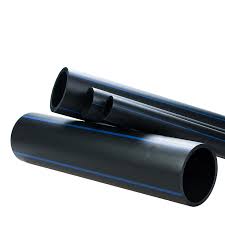Sep . 25, 2024 15:02 Back to list
High-Quality HDPE Drip Pipes for Efficient Irrigation Solutions and Agricultural Applications
Understanding HDPE Drip Pipe Manufacturing
High-Density Polyethylene (HDPE) drip pipes have gained immense popularity in agricultural irrigation systems due to their durability, flexibility, and efficiency. These pipes are specifically designed to deliver water directly to the plant roots, promoting optimal growth while conserving water. In this article, we will explore the manufacturing process of HDPE drip pipes, their benefits, and the role of manufacturers in promoting sustainable agriculture.
Manufacturing Process
The production of HDPE drip pipes begins with the selection of high-quality HDPE resin, known for its excellent chemical resistance and long lifespan. The manufacturing process typically involves several stages
1. Extrusion The HDPE resin is fed into an extruder, where it is heated and melted. The molten plastic is then forced through a die to form the desired pipe shape. During this process, manufacturers can incorporate various designs, such as inline emitters, which regulate water flow.
2. Cooling Once formed, the pipes are cooled down using water or air cooling systems. This step ensures that the pipe retains its shape and structural integrity.
3. Cutting and Belling The cooled pipes are cut into specific lengths, and bell ends may be added to facilitate easy connections between pipes. Precision in this stage is crucial for ensuring leak-free connections in the irrigation system.
hdpe drip pipe manufacturer

4. Quality Control Rigorous quality control checks are conducted throughout the manufacturing process. Tests for pressure tolerance, flexibility, and longevity help ensure that the pipes meet industry standards.
5. Packaging and Distribution After passing the quality checks, the pipes are packaged for distribution. Manufacturers often provide additional information about installation and maintenance to assist users.
Benefits of HDPE Drip Pipes
The use of HDPE drip pipes offers numerous advantages
- Water Efficiency By delivering water directly to the roots, these systems significantly reduce water wastage compared to traditional irrigation methods. - Cost-Effective Although the initial investment may be higher, the long-term savings on water and labor costs make it a worthwhile investment. - Durability HDPE is resistant to UV radiation and various chemicals, ensuring that the pipes have a long service life, often exceeding 50 years. - Adaptability These systems can be adapted to various terrains and crop types, making them suitable for diverse agricultural practices.
Conclusion
The role of HDPE drip pipe manufacturers is vital in advancing sustainable agriculture practices. By producing high-quality, efficient irrigation systems, they are helping farmers optimize water usage and improve crop yields. As the demand for sustainable farming solutions grows, manufacturers are poised to innovate further, ensuring that agriculture can meet the challenges of a changing climate while maintaining productivity. The future of farming lies in responsible resource management, and HDPE drip pipes are a testament to this vision.
-
High-Quality PVC Borehole Pipes Durable & Versatile Pipe Solutions
NewsJul.08,2025
-
High-Quality PVC Perforated Pipes for Efficient Drainage Leading Manufacturers & Factories
NewsJul.08,2025
-
High-Quality PVC Borehole Pipes Durable Pipe Solutions by Leading Manufacturer
NewsJul.08,2025
-
High-Quality PVC Borehole Pipes Reliable PVC Pipe Manufacturer Solutions
NewsJul.07,2025
-
High-Quality UPVC Drain Pipes Durable HDPE & Drain Pipe Solutions
NewsJul.07,2025
-
High-Quality Conduit Pipes & HDPE Conduit Fittings Manufacturer Reliable Factory Supply
NewsJul.06,2025

